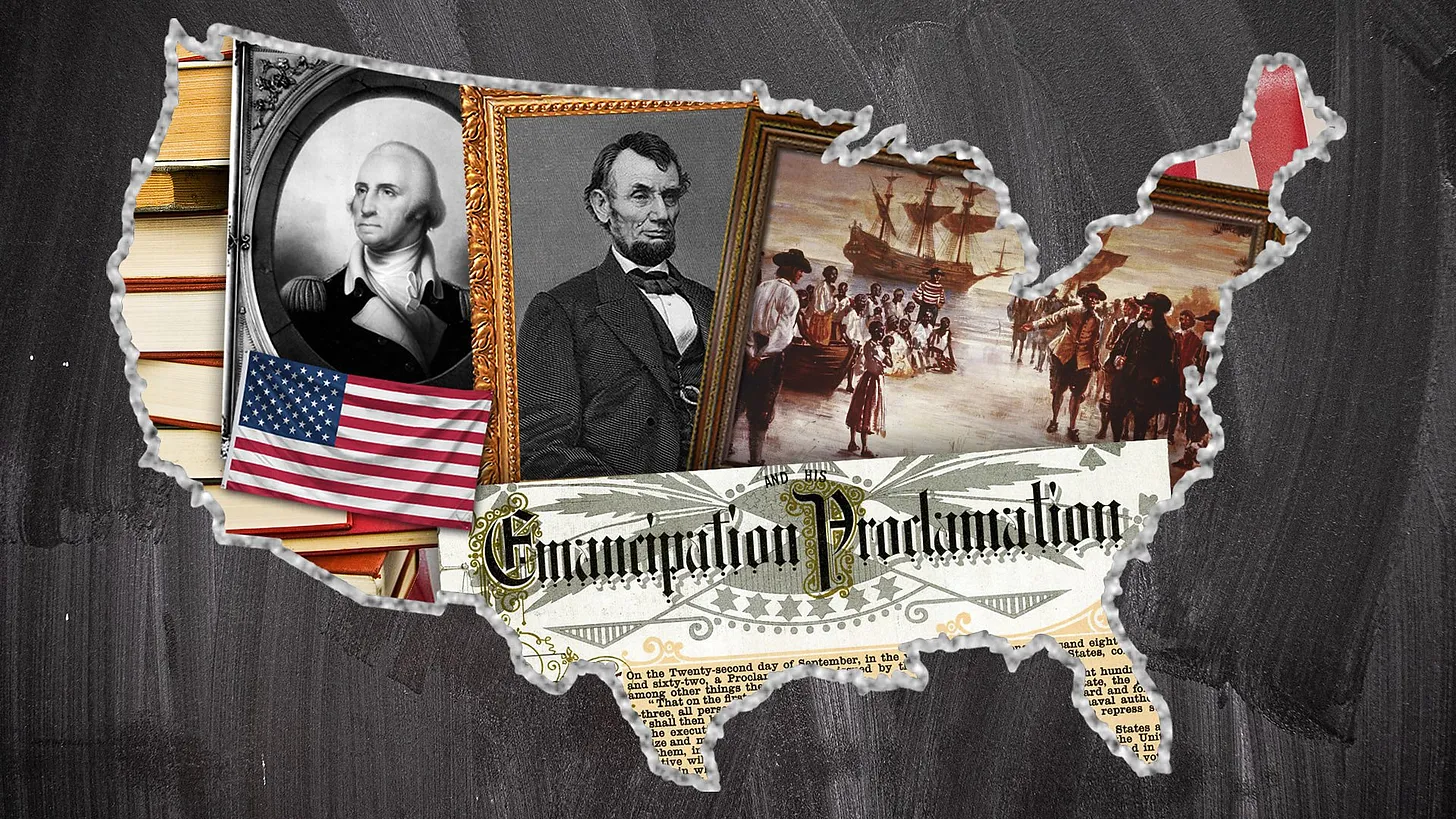- Infrastructure note;
- Robert Reich on America’s four stories;
- Heather Cox Richardson on how Trump has no apparent plan for governance.
Infrastructure note. I’ve installed an initial set of theme pages under the “NF Reviews” menu item above, which appear as items in a drop down menu. All the titles on the main page are on one (and only one) of the theme pages, though many of them straddle one or more of the nominal ten themes. I’ll figure out some way of cross-referencing them.
\\
Robert Reich has a couple long posts this week titled “America’s four stories” and how Republicans have done better aligning themselves with them than the Democrats have. Haven’t read them yet. But at a glance I’m fascinated in that the four stories represent a kind of American mythology of how the world is and how Americans are supposed to behave. American behave as if these stories are truths handed down from on high, but of course they’re only *stories*, narratives, derived from the circumstances of where Americans came from and what they did when they got here — and other nations and cultures surely have different stories.

Robert Reich, 12 Dec 2024: America’s four stories (Part 1), subtitled “Trump has offered extreme versions. The Democrats stopped offering them at all.”
To win back the heart and soul of America, Democrats must retell the four basic stories that have defined and animated the United States since its founding.
For most of the 20th century, Democrats did this instinctively. But in this century, they have tended to speak in technocratic terms, giving Republicans — culminating in Trump — the dominant political narrative.
I want to tell you about how the four basic American stories have been told and explain why it’s urgent that the real story of our era be told: that wealth and power concentrated at the top are corrupting American democracy and shafting most working people.
I’ll summarize his four stories…
There are four essential American stories. The first two are about hope; the second two are about fear.
The Triumphant Individual. This is the tale of the little guy who works hard, takes risks, believes in himself, and eventually gains wealth, fame, and honor.
It’s the story of self-made people who buck the odds, spurn the naysayers, and show what can be done with enough gumption and guts. They’re plainspoken, self-reliant, and uncompromising in their ideals — underdogs who make it through hard work and faith in themselves.
Examples are Benjamin Franklin and the Horatio Alger novels. Rocky, Norma Rae, Erin Brockovich. Trump wants to be one.
The Benevolent Community. This is the story of neighbors and friends who roll up their sleeves and pitch in for the common good.
Its earliest formulation was John Winthrop’s “A Model of Christian Charity,” delivered on board a ship in Salem Harbor just before the Puritans landed in 1630 — a version of Matthew’s Sermon on the Mount, in which the new settlers would be “as a City upon a Hill,” “delight in each other,” and be “of the same body.”
Then the abolitionists and civil rights activists, town meetings, Norman Rockwell, Frank Capra. Trumpists distort the story to imply it’s fallen to wokism, CRT, and so on.
The Mob at the Gates. In this story, the United States is a beacon light of virtue in a world of darkness, uniquely blessed but continuously endangered by foreign menaces. Hence our endless efforts to contain the barbarism and tyranny beyond our borders.
Daniel Boone fought Native Americans; Davy Crockett fought the Mexicans. Science fiction heroes battle alien invaders. The Cold War and the evil empires. Trumpists emphasize this story to scare Americans into believing they’re constantly under threat from foreigners and immigrant invaders.
The Rot at the Top. The last story concerns the malevolence of powerful elites. It’s a tale of corruption, decadence, and irresponsibility in high places — of conspiracy against the common citizen.
King George III, distrust of the government, bullies in American fiction like Mr. Potter in It’s a Wonderful Life. Hofstadter’s paranoid style in US politics; the Ku Klux Klan; Joseph McCarthy’s witch hunts. Trump turns this story into raging against government agencies and the “deep state.”
And I’ll pause there for now, and return to Reich’s pieces in coming days. The point to me is these are attitudes built up among Americans, especially about external threats and the corruption of the government, that evolved in American society for various circumstantial reasons. And have solidified into prejudices. (I wonder if these posts are seeds for another Reich book.) And are mostly not true.
\\\
Here’s Heather Cox Richardson’s even-handed, historically perspectived take on Donald Trump being named Time Magazine’s Person of the Year.
Letters from an American, Heather Cox Richardson: 13 Dec 2024
Time magazine’s interview with President-elect Donald Trump, published yesterday, revealed a man who was so desperate to be reelected to the presidency that he constructed a performance that he believed would woo voters, but who has no apparent plans for actual governance.
Trump deliberately patterned the Republican National Convention where he accepted the party’s nomination for president on a professional wrestling event, even featuring a number of professional wrestlers. It appears now that the campaign itself was, similarly, a performance—possibly, as Tom Nichols of The Atlantic suggested, simply to avoid the threat of conviction in one of the many federal or state cases pending against him. In the Time interview, Trump called his campaign “72 Days of Fury.”
During the campaign, Trump repeatedly promised he would “slash” the prices that soared during the post-pandemic economic recovery, although in fact they have been largely stable for the past two years. He hammered on the idea that he would erase transgender Americans from public life—the Republicans invested $215 million in ads that pushed that theme, making it a key cultural battle. He and his surrogates attacked immigrants, lying that Haitian immigrants in Springfield, Ohio, for example, were eating local pets and that Aurora, Colorado, a suburb of Denver, had been taken over by Venezuelan gangs, and falsely claiming that the Biden administration had opened the southern border.
The Time interview suggests that, now that he has won back power, Trump has lost interest in the promises of the campaign.
As already noted, he is walking back his promise to lower grocery prices. Among other issues. He’s going to look at things. He has concepts of plans, but no plans.
If Trump has now abandoned the performance he used to win the election, Trump’s planned appointments to office reveal that the actual pillars of his presidency will be personal revenge, the destruction of American institutions, and the use of political office for gain, also known as graft.






